10 start with M start with M
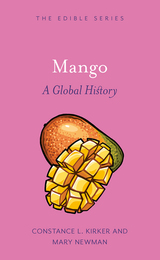
This beautifully illustrated book takes us on a tour through the rich world of mangoes, which inspire fervent devotion across the world. In South Asia, mangoes boast a history steeped in Hindu and Buddhist mythology, even earning a mention in the Kama Sutra. Beyond myth, the authors show us that mangoes hold literary significance as a potent metaphor. While mango-flavored smoothies grace Western grocery shelves, the true essence of sweet, juicy mangoes or tangy, unripe varieties is a rarity: supermarket offerings often prioritize shelf-life over taste.
This book offers an accessible introduction to the world of true mango aficionados and the thousand varieties they cherish.
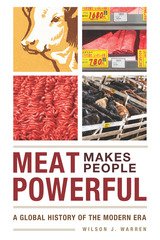
From large-scale cattle farming to water pollution, meat— more than any other food—has had an enormous impact on our environment. Historically, Americans have been among the most avid meat-eaters in the world, but long before that meat was not even considered a key ingredient in most civilizations’ diets. Labor historian Wilson Warren, who has studied the meat industry for more than a decade, provides this global history of meat to help us understand how it entered the daily diet, and at what costs and benefits to society.
Spanning from the nineteenth century to current and future trends, Warren walks us through the economic theory of food, the discovery of protein, the Japanese eugenics debate around meat, and the environmental impact of livestock, among other topics. Through his comprehensive, multifaceted research, he provides readers with the political, economic, social, and cultural factors behind meat consumption over the last two centuries. With a special focus on East Asia, Meat Makes People Powerful reveals how national governments regulated and oversaw meat production, helping transform virtually vegetarian cultures into major meat consumers at record speed.
As more and more Americans pay attention to the sources of the meat they consume, Warren’s compelling study will help them not only better understand the industry, but also make more informed personal choices. Providing an international perspective that will appeal to scholars and nutritionists alike, this timely examination will forever change the way you see the food on your plate.
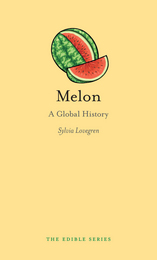
Along the way, Lovegren details the impact the melon has had on humankind. Moving from ancient and medieval medical recipes to folk tales, stories, growing contests, and genetics, she explores the diverse ways we have cultivated, enjoyed, and sometimes even feared this fruit. She explores how we have improved modern melons over centuries of breeding, and how some growers and scientists today are trying to preserve and even revive ancient melon strains. Richly illustrated and with a host of ancient, medieval, and modern recipes, Melon is a delightful look at the surprising history of one of the world’s most sumptuous fruits.


Milk—“It does a body good.” It’s difficult to deny the truth of the American Dairy Council’s former advertising campaign. From birth milk is the sustaining and essential food of all mammals. It is the first food we ever taste. And yet, despite that natural relationship to milk, the majority of the world’s population cannot digest it in the form most often available to adults—cow’s milk.
In Milk, Hannah Velten explores the myths and misconceptions surrounding the ubiquitous drink. Modern milk processing produces a safe, clean beverage that is very different from pure milk straight from the cow. Nonetheless, there are many advocates of raw milk that long for the days before pasteurization, homogenization, and standardization. Yet milk in the time before these scientific processes was even less natural than today—known then as the white poison, it was bacteria-ridden, mixed with additives to make it look like milk after the cream was removed, filled with chemicals to promote its shelf life, and extremely watered down.
Now that milk is considered a staple of a healthy and balanced diet, Velten investigates how and why conceptions of milk have shifted in the public consciousness, from the science of nutrition to the dairy industry’s advertising campaigns. This highly illustrated exploration of one of the most fundamental foods and drinks also includes recipes for ice-cream, milkshakes, and even milk paint. Milk will surprise and entertain in equal measure.

With the rise of projects to create global histories and art histories, the Mongol Empire is now widely taken as a fundamental watershed. In the later thirteenth century, the Mongol states reconfigured the basic zones of Eurasian trade and contact. For those they conquered, and for those who later overthrew them, new histories and narratives were needed to account for the Mongol rise. And as people, ideas, and commodities circulated in these vast and interconnected spaces, new types of objects and new visual languages were created, shifting older patterns of artistic production. The Mongol rise is now routinely cast as the first glimmering of an early modernity, defined as an ever-increasing acceleration in systems of contact, exchange, and cultural collision.
Yet what is at stake in framing the so-called Pax Mongolica in this way? What was changed by the Mongol rise, and what were its lasting legacies? It is the goal of essays in this book to address these and other questions about the Mongol impact and their modern role, and to make these debates more widely available. Contributors include specialists of Mongol history and historiography as well as Islamic, East Asian, and European art, writing on topics from historical chronicles to contemporary historiography, and case studies from textile production to mapmaking and historical linguistics.
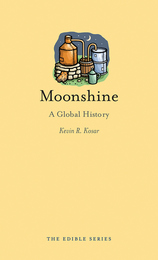
Kosar first surveys all the things we’ve made moonshine from, including grapes, grains, sugar, tree bark, horse milk, and much more. But despite the diversity of its possible ingredients, all moonshine has two characteristics: it is extremely alcoholic, and it is, in most places, illegal. Indeed, the history of DIY distilling is a history of criminality and the human ingenuity that has prevailed out of officials’ sights: from cleverly designed stills to the secret smuggling operations that got the goods to market. Kosar also highlights the dark side: completely unregulated, many moonshines are downright toxic and dangerous to drink. Spanning the centuries and the globe, this entertaining book will appeal to any food and drink lover who enjoys a little mischief.

This book unfolds the gripping history of weaponized mail, offering the first-ever comprehensive exploration of this sinister phenomenon. Spanning two centuries, Murder by Mail unveils the history of postal bombs, describing the evolution of both explosives and the postal services that facilitated their deadly use. From an eighteenth-century incident involving Jonathan Swift to modern acts of terror by groups like the IRA, Suffragettes, and lone actors such as the Unabomber, it uncovers the surprising ubiquity of mail bombs.
This chronological account meticulously covers each decade, from early anarchists and world wars through the Cold War to the rise of the serial bomber. Astounding in scope, this book sheds light on the psychopathy, motivations, and political implications behind murder by mail.
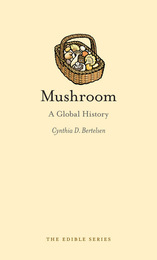
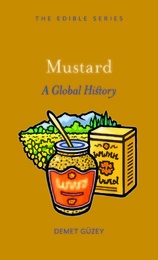
In this delightful global history of all things Grey Poupon and gleaming yellow, Demet Güzey takes readers on a tour of the ubiquitous mustard, exploring its origins, its use in medicine and in the kitchen, its place in literature, language, and religion, and its strong symbolism of sharpness, perseverance, and strength. Packed with entertaining mustard facts and illustrations as well as a selection of historic and modern recipes, this surprising history of one of the world’s most loved condiments will appeal to all food history aficionados.
READERS
Browse our collection.
PUBLISHERS
See BiblioVault's publisher services.
STUDENT SERVICES
Files for college accessibility offices.
UChicago Accessibility Resources
home | accessibility | search | about | contact us
BiblioVault ® 2001 - 2024
The University of Chicago Press









